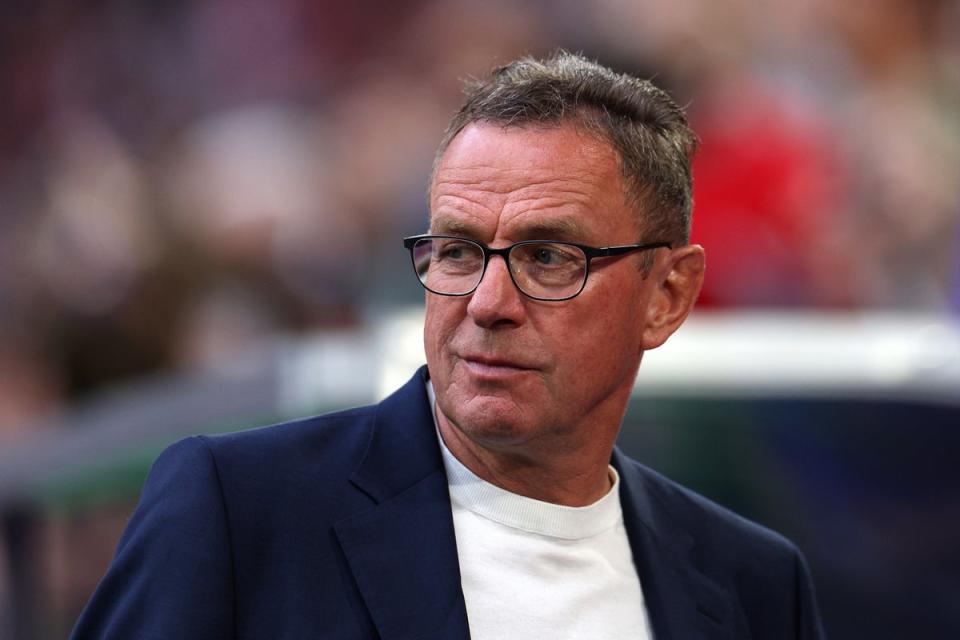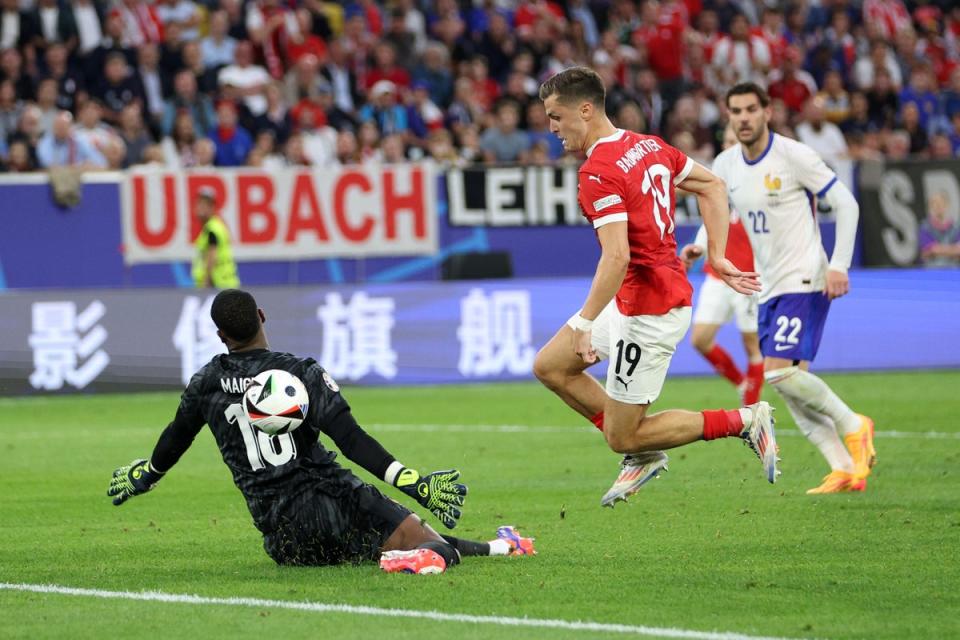Why Ralf Rangnick’s Austria should still be your dark horses at Euro 2024
The Godfather of Gegenpressing, of all people, was made an offer he surely couldn’t refuse. And yet somehow, some way, he did.
As the European Championship approached, so did Bayern Munich, but Ralf Rangnick held firm. It is a quirk of Rangnick’s career, that Germany’s most influential coach has never worked with the nation’s preeminent football club. Instead, the highest-profile periods of the 65-year-old’s career have been spells at Schalke, Leipzig, Stuttgart, Hoffenheim, Hannover, and – more recently – Manchester United.
During his time as interim coach of United, the German accepted the Austria job and reneged on his decision to remain at the Premier League club in an advisory capacity. His arrival in England had stirred excitement in football purists, or nerds, yet his time there did not bring the desired results.
At Austria, however, the last two years have been fruitful. In fact, while in charge of das National team, Rangnick has mustered the best winning percentage of his long and storied career: 60.87 per cent (23 games played, 14 won, 4 drawn, 5 lost).
Yes, the sample size is small, and statistics don’t always tell the full story, but the stint has clearly been encouraging and enjoyable for Rangnick, who deemed a Euro 2024 run with Austria a purer pursuit than striding up and down green carpets at FC Hollywood.
His first game with Austria was a 3-0 win over Croatia, and although mixed results ensued, so did a win against Italy and draws with Belgium and France. More pertinently, they hit a vaunted vein of form ahead of Euro 2024, winning their last two games of 2023 and three of four this spring.
Yet optimism was tempered for this campaign, courtesy of a daunting group-stage draw with France, Netherlands and Poland, and injuries to key players – including captain David Alaba. In fact, Austria entered Germany depleted in every area of the pitch.
And still they turned up emboldened for this Group D tie against France, the national team of their generation.

While Rangnick was sedentary in the dugout, Didier Deschamps – the great French conductor – strode along the sideline, inciting a tempo that initially made a mockery of any machinations of Austrian Gegenpressing. Kylian Mbappe, Antoine Griezmann, Ousmane Dembele and co were simply too swift, too slick, too slippery. Austrian attempts to win back possession routinely left Rangnick’s players too tight and deftly turned, resulting in repeated fouls and five bookings.
Holding midfielder Florian Grillitsch had even floored Mbappe inside two minutes, conceding a free kick in a dangerous position – an opportunity that France were presented several times. And when Austria did have the ball, they were sloppy.
So, that tempered optimism seemed sensible, until Rangnick’s team started to click. When centre back Maximilian Wober perfectly timed a tackle, dispossessing a marauding Theo Hernandez just outside the Austria box, he kickstarted a slew of promising counters, which defined the impending phases of play.
Two such moves almost resulted in goals for the talismanic Christoph Baumgartner. Firstly, in one of the Euros’ most audacious moments yet, the 24-year-old scooped the ball over his nearest man while skipping into France’s box, only to be denied in a 50-50 challenge.
Soon thereafter came his gilt-edged opportunity. A Michael Gregoristch cross drifted just outside the French area, with Marcel Sabitzer cushioning it perfectly between Hernandez and William Saliba. The ball bounced sumptuously for Baumgartner, who found himself one on one with Mike Maignan. But the France keeper made himself big, and his trailing boot sent the Austrian’s shot bouncing agonisingly wide.

It was a clear corner for Austria. And it was not awarded. Almost exactly one minute later, France broke the deadlock.
And who else but Mbappe to make the difference? Well, actually, Wober – but thanks to some trademark attacking menace from Mbappe, who was so clearly motivated to make his mark on this tournament.
The 25-year-old disorientated Philipp Mwene, leaving him stranded in the box, before clipping a ball into the perfect spot. Bryson DeChambeau would have been proud. The awkward height and relative speed of the cross caught out Wober, whose vision was obscured by his leaning centre-back partner, Kevin Danso. Wober flicked a header backwards and into the bottom corner, in a critical blow to Austrian hopes.
Yet Rangnick’s side continued brightly after the break, their improved play evident as they applied geometry to create triangle after triangle – right-angled, isosceles, scalene; you know the types. Still France threatened, as they were bound to, yet a miraculous one-on-one miss by Mbappe bolstered Austrian belief.
And so the Austrians threatened, too, largely with counters and crosses, before Wober made way on the hour mark along with Gregoritsch and Grillitsch. Marko Arnautovic's arrival roused his compatriots in the crowd, a red roar reverberating around the east stand. The roar morphed into a whistle moments later, when Sabitzer was sandwiched in the French box and no penalty was given.
Half-chances came and went, one involving a sliding Baumgartner and a boot into Maignan’s face, but Rangnick’s men could not capitalise. Even so, this game revealed his revival to the wider world.

 Yahoo Sports
Yahoo Sports 
